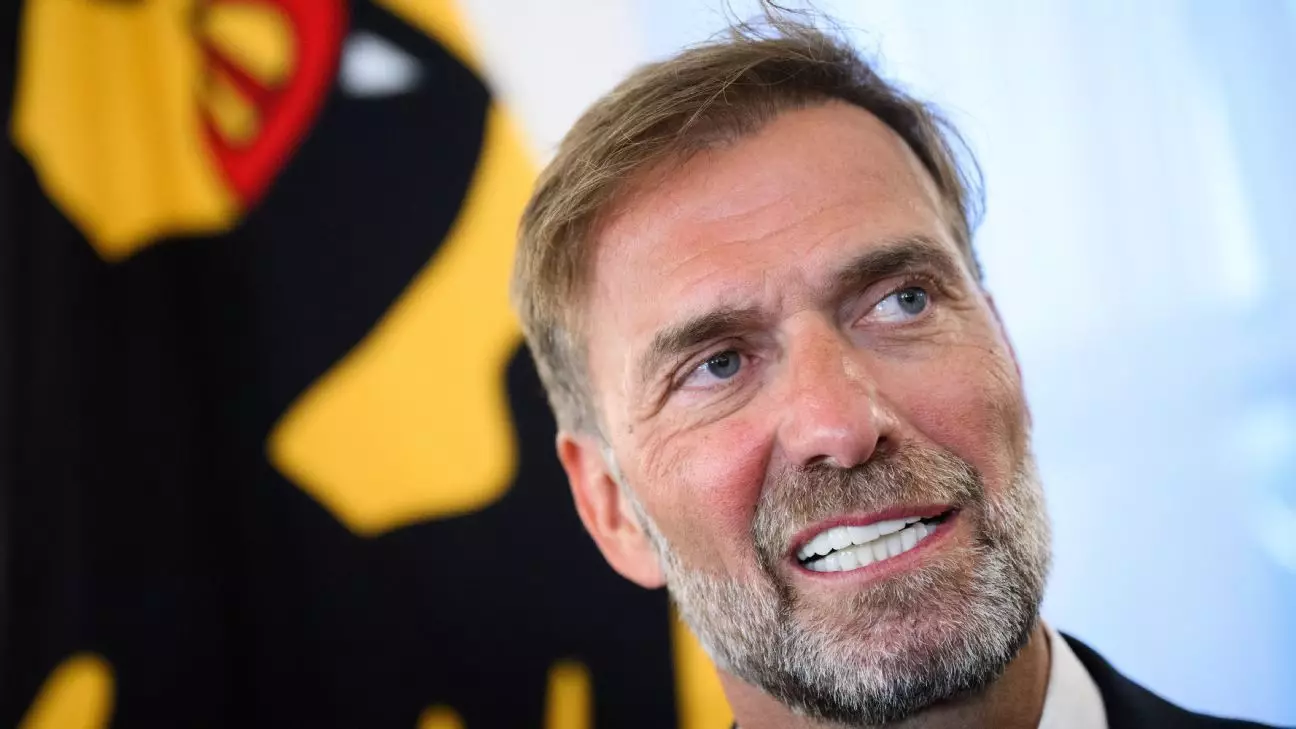Jürgen Klopp’s Controversial Leap into Corporate Football Leadership
Have you ever found yourself at a crossroads, faced with a decision that could alter the course of your career? That’s exactly where Jürgen Klopp found himself as he transitioned from his beloved role at Liverpool to take on a new challenge as the head of global football for Red Bull’s network of clubs. For many fans, particularly those in Germany, this move has been nothing short of controversial, stirring up emotions and sparking debates about the future of football and its deep-rooted traditions.
Leaving Liverpool after a glorious nine-year stint, Klopp’s choice seemed unexpected to many. Known for his passion and grassroots approach to the game, his decision appeared to align him with corporate interests, leaving some fans feeling betrayed. But life is rarely black and white, especially in football. Speaking candidly on a podcast with Toni Kroos, Klopp explained that his goal was to avoid stepping on anyone’s toes, emphasizing that maintaining loyalty in such a corporate structure is no easy feat.
Key Takeaways
- Jürgen Klopp’s new role at Red Bull stirs emotions among fans due to corporate affiliations.
- His transition raises questions about maintaining loyalty while embracing corporate structures.
- The debate highlights broader tensions between football tradition and commercial evolution.
A Deep Emotional Transition
The heart of the controversy lies in how fans perceive Red Bull’s influence on football. Many supporters associate the company with commercialization that undermines traditional values and fan loyalty. This sentiment is particularly strong in Germany, where clubs like Borussia Dortmund and Mainz hold rich histories that clash with corporate ownership models. Fans have been vocal in their disapproval, showcasing banners questioning Klopp’s choices during matches.

This emotional upheaval stems from a profound connection fans have with their clubs—a connection nurtured over generations. When a beloved coach like Klopp appears to prioritize corporate engagements over club loyalty, it creates a rift. Despite understanding this, Klopp acknowledges the inevitability of disappointing some supporters regardless of his decisions. This reflects the polarized nature of today’s football fandom amidst growing commercialism.
Corporate Influence: A Double-Edged Sword?
Despite the backlash, Klopp offers an alternative view of Red Bull’s role in football. He argues that the company’s investment has brought new life to neglected areas, particularly in East Germany through initiatives like RB Leipzig. This perspective sparks necessary dialogue: can corporate investment coexist with traditional football values without estranging its core fan base? It’s a question that resonates deeply within the football community today.

Klopp aims to serve more as an advisor than a direct strategist in his new role at Red Bull. By positioning himself as a mentor, he hopes to bridge innovative coaching techniques with established football traditions. This shift highlights a potential change in how coaching roles are perceived—not just as leaders on the pitch but as integral parts of broader football structures.
Navigating New Waters
At 57, Klopp embraces this phase with hope and pragmatism. He desires to remain influential within football without being tied down by daily coaching tasks. His departure from Liverpool doesn’t signal a departure from the sport itself; instead, it reflects an understanding of its ever-evolving nature. Leaders like Klopp must adapt while staying true to core values cherished by fans worldwide.
The real challenge for Klopp lies in balancing personal ambition with expectations from devoted fans who view loyalty as sacred. His journey at Red Bull serves as a microcosm of broader tensions within football—between tradition and evolution, individual aspirations and collective identity. As he embarks on this new chapter, all eyes will be on him to see if he can achieve a harmonious blend of innovation and respect for football’s rich heritage.
Final Thoughts
Jürgen Klopp’s foray into corporate leadership challenges us all to rethink what it means to lead within modern football structures. His journey symbolizes an ongoing dialogue between preserving cherished traditions and embracing necessary progressions that come with corporate involvement. Whether you agree or disagree with his choices, there’s no denying that Klopp’s path will shape future discussions around leadership roles in sports.
Jürgen Klopp
Red Bull
corporate football
football traditions


Leave a Reply